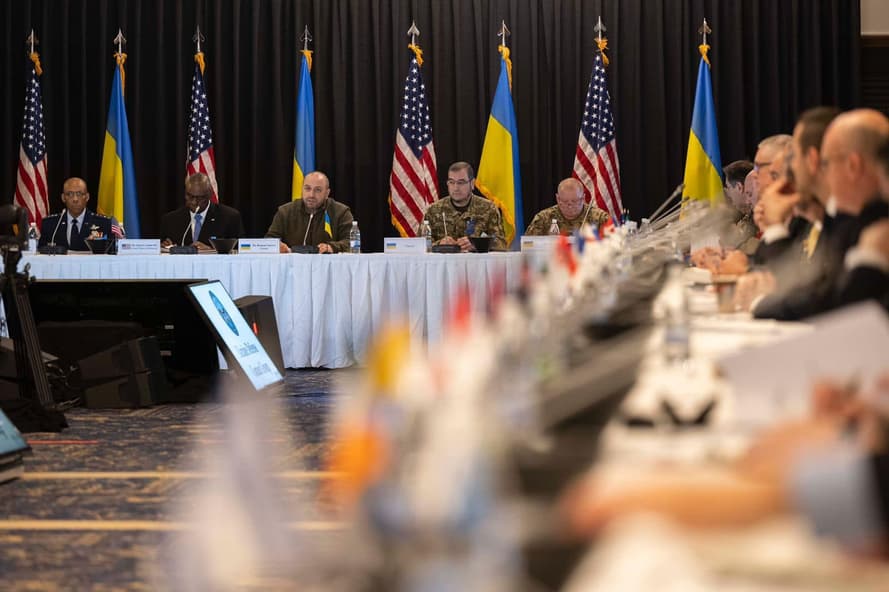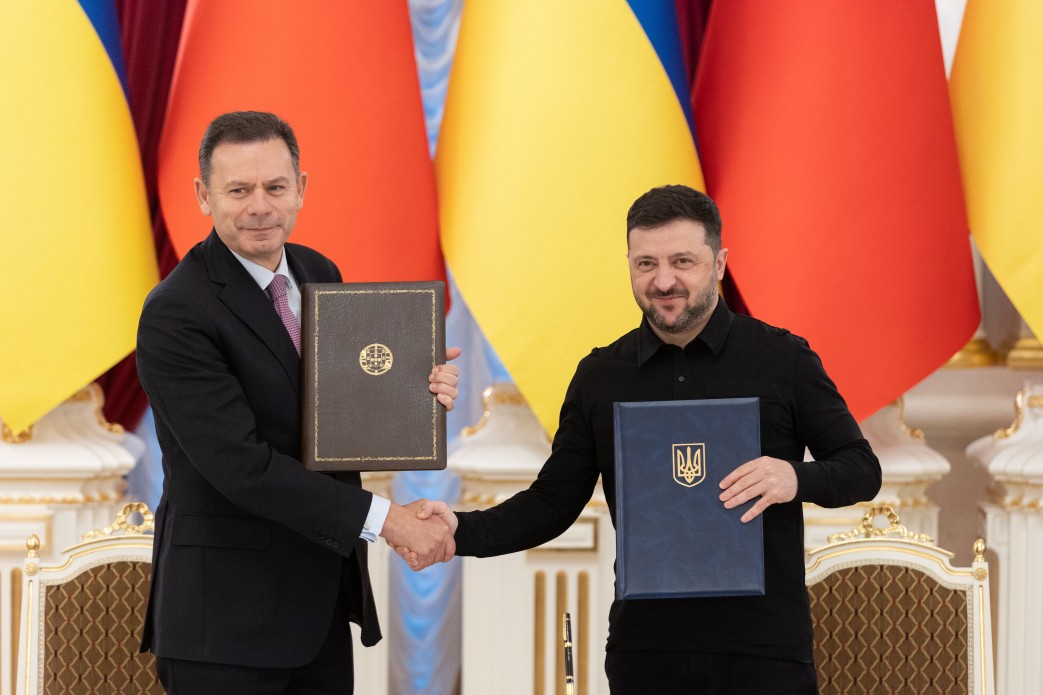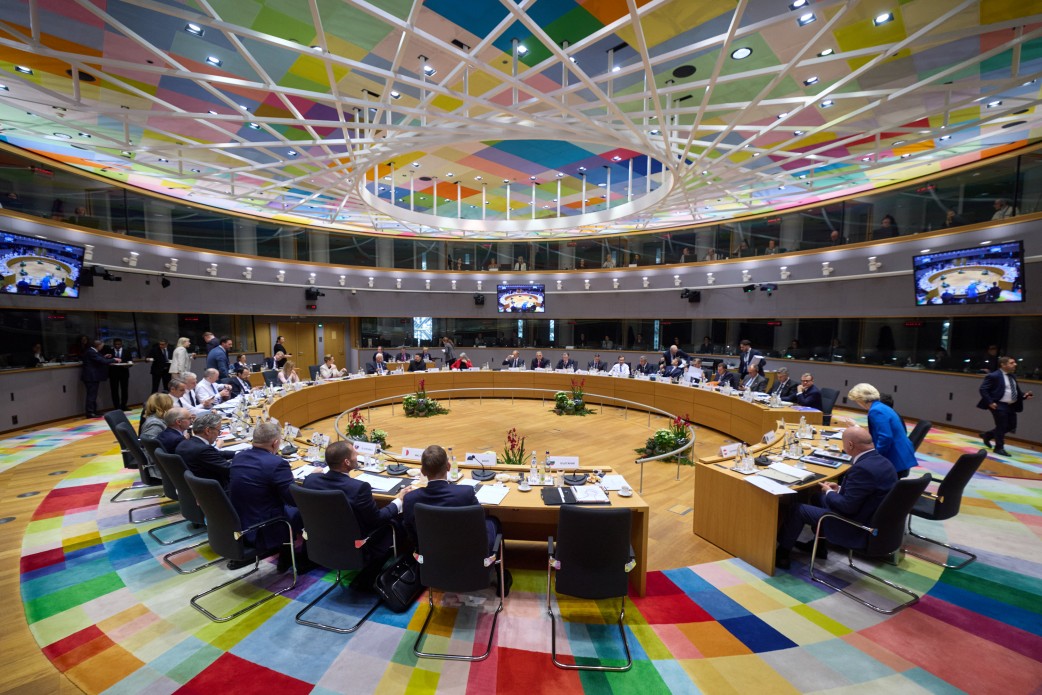Ukraine's Western partners held another meeting in the Ramstein format. The partners made several statements and announced the delivery of military aid.
At the briefing, U.S. Defense Secretary Lloyd Austin reported that the meeting participants discussed defensive operations along the entire front line, including around Kharkiv. According to him, it is not easy for Ukrainian troops, but Russia is already paying a high price for its aggression.
"Ukraine is gaining a strategic advantage while Vladimir Putin is waging a war of imperial aggression reminiscent of the 19th century. He is doing this in 2024, and his strategy leaves much to be desired," noted the Pentagon chief.
The partners in the Ramstein format dedicated a lot of time to the supply of air defense systems and focused on urgent requests. Austin mentioned a $400 million package that includes ammunition for NASAMS, HIMARS, new armored vehicles, and more.
"We are also delivering everything that Ukraine needs, especially 155-mm shells. Much more is on the way," he emphasized.
He also addressed whether the Ukrainian Armed Forces can use American weapons to strike targets in Russia. He stated that the weapons are primarily provided for hitting closer targets.
_1716270441.jpg/14Jahpz77o1IS5l9h5yLGaG2MUTYakbW8C8VJQe9.jpg)
Chairman of the U.S. Joint Chiefs of Staff, General Charles Brown, clarified that ultimately, it is up to Ukraine to decide, but generally, American weapons are currently used for shorter distances. Regarding occupied Crimea, he stated that Ukraine has the right to strike enemy targets on the peninsula.
He also clarified recent statements about the work of American military advisors. Joint training was conducted in 2022, and after the war ends, the U.S. and Ukraine will enhance the exchange of combat practices.
In response to questions about missile strikes, Brown assured that ATACMS have not been used against Russian territory. Finally, Austin was asked whether Ukraine can shoot down planes carrying KABs over Russia.
"We have made it very clear that Ukraine receives everything needed to protect its sovereignty. The rest I will leave to the experts. Our expectation is that the Ukrainians will continue to use the weapons within the country. But when we talk about air dynamics, it can be different," he added.
The German Ministry of Defense reported that partners have agreed to support the German initiative to strengthen Ukraine's air defense systems.
"The outcome of the online meeting of the Ukraine Contact Group: numerous partners want to support the German initiative to strengthen Ukrainian air defense systems," stated a publication on the official account on X.
It was also specified that Belgium, Denmark, the Netherlands, Norway, and Canada are ready to finance the enhancement of air defense. The United States, the United Kingdom, France, Spain, Romania, Belgium, and Lithuania are ready to supply equipment and interceptor missiles.
It is worth noting that Berlin announced this new initiative back in April. Since then, it has been revealed that Germany will provide a third Patriot battery, the U.S. might provide another one, and the Netherlands and other allies are ready, according to Ukraine's Foreign Minister Dmytro Kuleba, to purchase such systems at any cost.
The Netherlands will transfer YPR armored vehicles. YPRs are equipped with remote-controlled weapon stations (RCWS). These armored vehicles can provide fire support on the battlefield.
"It is very important that we continue to support Ukraine. These types of armored vehicles are very important. They are maneuverable, can quickly move troops, and can be used for reconnaissance, offensive, and defensive purposes. And the remote-controlled weapons provide the gunner with additional safety," said Defense Minister Kajsa Ollongren.
The YPRs will be delivered as soon as possible. There are no exact figures on the quantity, but previously the Netherlands delivered 207 YPRs of various types.
Lithuania is ready to send military instructors to Ukraine. As stated by Lithuanian Foreign Minister Gabrielius Landsbergis on the French TV channel LCI, his country is prepared to join French President Emmanuel Macron's proposal to send Western instructors.
According to Landsbergis, Vilnius could send back the instructors who were in Ukraine before the full-scale invasion. This is an urgent and necessary measure.
"Lithuania is ready to join the coalition for training Ukrainian military personnel, led, for example, by France," he noted.




















